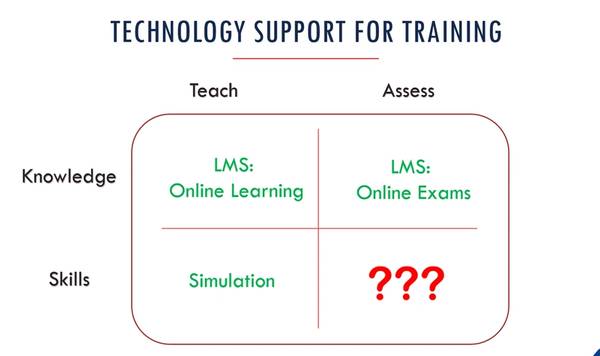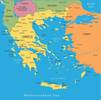
Ours is both a knowledge-based and skill-based industry. We know this. Yet our training does not address both aspects equally. And until it does, we are needlessly sacrificing safety and performance. There is more we can do.
Maritime workers require a high degree of both knowledge and skills to perform efficiently and safely. Knowledge enables officers and crew to react intelligently to novel situations and to operate safely in challenging environments. Yet knowledge, while necessary, is not sufficient for safe and performant operations. In addition to knowledge, nearly every position on board requires officers and crew to possess and demonstrate a high degree of skill.
Given the above, there are four components required for comprehensive and effective training in the maritime industry: Knowledge learning, knowledge assessment, skill training, and skill assessment. It turns out that one of these four components has been left behind.
In the last decade or so, we have become highly proficient at knowledge learning and assessment. Technology has helped significantly making knowledge acquisition available online, both on land and on board. Likewise, technology has provided the ability to assess knowledge and, more importantly, use the data from those assessments to pinpoint gaps in knowledge, as well as strengths and weaknesses in our training programs.
Similarly, simulation technology has advanced the state of the art in skill training. Simulated environments allow learners to experience and respond to an immense variety of situations, over and over, helping to perfect their skills in a way that is highly complimentary to actual on-board experience. And while simulation technologies to have mostly been reserved for the top ranks in the deck and engine departments, virtual and augmented reality technology is becoming more affordable, making it available to a progressively broader range of officers and crew.
But what about skill assessment? Assessing skill proficiency for individuals and teams is critically important in maritime. Yet skill assessment is rarely done, and when it is done (for example as part of simulation training), the process is typically paper-based and highly subjective, limiting our ability to utilize the data to identify workforce trends or risks. Additionally, it requires significant expertise on behalf of the assessor which limits opportunities for assessment. For the vast majority of other skill-demonstrations such as drills, training exercises and on-the-job performance, the skills demonstrated are often barely assessed or not assessed at all. This is a glaring gap in our (and many other) industries. This needs to change, and fortunately new technologies are starting to close the gap. The first example I am aware of for the maritime industry is the “SkillGrader”.
The Skill Grader was initially developed as a collaboration between Marine Learning Systems and the training and assessment experts at our largest customer, the Carnival Group of cruise lines. The original goal was to support a sophisticated competency framework and performance-related training. This required a way to simply, objectively and deeply assess skills for teams and individuals, and to generate skill performance metrics for the workforce as a whole. The use of early prototypes at Carnival proved that obtaining deep and objective metrics on skill performance was indeed possible. Simplifying the process also greatly expanded opportunities for assessment helping to shed light on what is arguably the most important question of safety and performance: does our workforce perform their duties according to company best-practice?
The end result is a tablet-based app that is used to simply and objectively assess the performance of skills by teams and individuals. It can be used to assess simulation training, drills, or on-the-job performance. It reports on the proficiency of the team (for team-based skills) and each individual’s contribution to the team performance. All results are stored in a database providing access to broad workforce skill insights as assessment data accumulates over time. Overall, it is meant to greatly increase opportunities for the assessment of skills, and to produce both immediate and long-term actionable reports.
There is no question that the maritime industry is deeply dependant on the skills of our officers and crew. Therefore, whether it is using technologies like the SkillGrader or using more traditional techniques such as paper-based forms, it is time to get serious about making skill assessment a central part of our training.
Until next time, keep healthy and sail safely.



